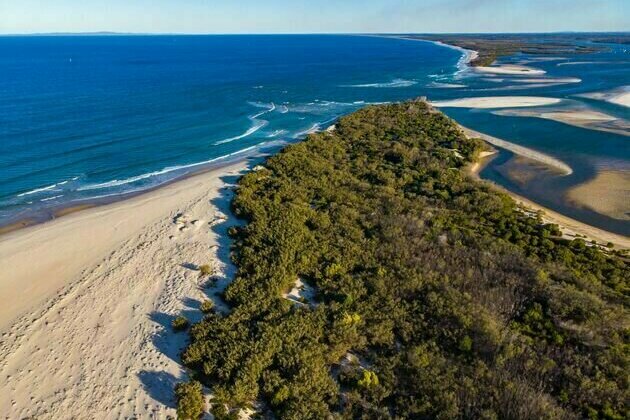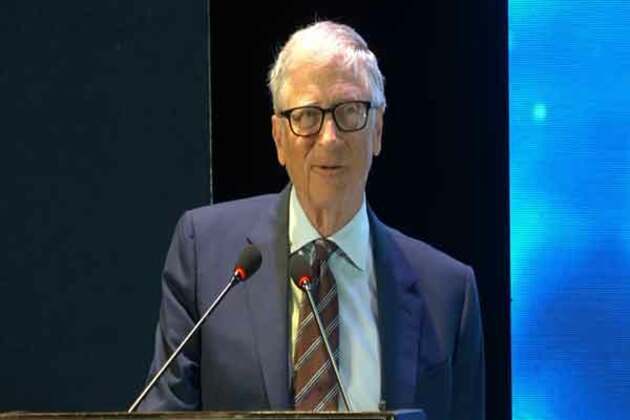We combed through old botanical surveys to track how plants on Australia's islands are changing
The Conversation
20 Mar 2025, 23:12 GMT+10

More than 8,000 continental islands sit just off the coast of Australia, many of them uninhabited and unspoiled. For thousands of species, these patches of habitat offer refuge from the threats they face on the mainland.
Coastal islands are also a valuable resource for ecologists studying how communities of plants colonise new habitats and change over time.
Now, we have created a new publicly available database known as A-Islands, which draws on decades of plant surveys (where botanists visit a particular location and record the plants found there).
This unique collection of surveys draws on data about more than 6,500 plant species from over 850 islands. Some vast islands stretched for kilometres, while others were as small as a tiny apartment.
Our new research, published in the Journal of Vegetation Science, provides new insights into how Australia's coastal islands have changed over time, and can help with plant monitoring and conservation efforts as the climate warms.
We built A-Islands by painstakingly digitising plant surveys from old books and records, and speaking with botanists and organisations all over Australia.
A-Islands is made up of 1,350 island botanical surveys dating back to the 1940s, from over 135 different sources. We are still adding more.
The stories of how the data was collected were fascinating. In some cases, people camped on islands for weeks, making sure they'd recorded every living organism they could.
Some scaled steep cliffs from small boats or even jumped from helicopters to access remote islands, and record the plants they found there.
As we collated the surveys, we realised Australia's coastal islands were punching above their weight for species diversity.
Despite making up less than 1% of Australia's land area, at least 25% of Australia's plant species inhabit these coastal islands.
These islands' climates are almost as diverse, spanning coral atolls in tropical north Queensland to the cold and windswept rocky isles off the southern tip of Tasmania.
While some species of plants have colonised hundreds of Australian islands, most inhabit just a few isles.
These plant communities are the backbone of island ecosystems and provide havens for many endangered animals.
Many of the islands featured in A-Islands have been surveyed more than once over the last 100 years.
Most data in the ecological sciences tends to provide a snapshot in time of the species that might be at a location.
In contrast, A-Islands can tell us how the plant communities have changed over decades.
This is surprisingly rare in ecological studies but essential if scientists are to predict vegetation changes in the future as the climate changes.
Many people think of plant communities as static and unchanging.
However, A-Islands shows that on these small coastal islands, mainland species are migrating to the island, persisting for a time, and then going extinct and being replaced by other species.
This concept of species constantly changing at a particular location is called species turnover. In theory, the types of species in an island community will change over time but the number of species remains, on average, the same over the long term.
The data in A-Islands not only confirms this has happened at an unprecedented number of archipelagos, but also suggests a new idea: some types of species "turnover" faster than others.
Species like grasses and small herbs tend to come and go from islands more frequently than longer lived taller species.
Data sets such as A-Islands will become even more essential as the climate changes. Islands are at the forefront of biodiversity loss, and over half of the known global plant extinctions have occurred on islands.
Uncovering these underlying trends in species community change will be crucial for predicting how plant communities everywhere respond to climate change over the coming centuries.
These islands will be important climate refuges, buffered from the hottest temperatures by the surrounding ocean and protected from mainland pressures. They will be vital plant habitats in the future.
The A-Islands dataset forms a crucial baseline for defining what species have inhabited our pristine island environments over time.
It can also help scientists work out where to prioritise surveys they'll need to do as the climate changes.
 Share
Share
 Tweet
Tweet
 Share
Share
 Flip
Flip
 Email
Email
Watch latest videos
Subscribe and Follow
Get a daily dose of Perth Herald news through our daily email, its complimentary and keeps you fully up to date with world and business news as well.
News RELEASES
Publish news of your business, community or sports group, personnel appointments, major event and more by submitting a news release to Perth Herald.
More InformationInternational Business
Section"Snack break before we get to work": Bill Gates enjoys vada pav with Sachin Tendulkar
New Delhi [India], March 21 (ANI): Microsoft co-founder and philanthropist Bill Gates shared a video with Indian cricket legend Sachin...
"Exciting to see effective innovation done in a clever way": Bill Gates praises India's growth story
New Delhi [India], March 20 (ANI): Microsoft co-founder and philanthropist Bill Gates has praised India's role in global innovation,...
100 days without Assad. Is Syria any better
Since the overthrow of the old regime, the new Damascus government has seen bloody sectarian violence and an economy in ruins It...
Delhi: Lakshay Vij gets regular bail in PMLA case linked to transnational cyber fraud
New Delhi [India], March 20 (ANI): The Rouse Avenue Court has granted regular bail to Lakshay Vij who is an accused in a money laundering...
Economic Watch: U.S. Fed warns of tariff risks amid growth concerns
U.S. Federal Reserve Chair Jerome Powell attends a press conference in Washington, D.C., the United States, on March 19, 2025. (Xinhua/Hu...
US Senator Nelson thanks God and NASA after Sunita Williams, Butch Wilmore return to Earth
Washington, DC [US], March 20 (ANI): US Senator and the NASA Administrator Bill Nelson has thanked God and employees of the US space...
Australia
SectionTrump to sign rare earth mineral deal with Ukraine 'shortly', expresses hope for Russia-Ukraine ceasefire
Washington DC [US], March 21 (ANI): US President Donald Trump on Thursday (local time) said that he would be signing a rare earth mineral...
Nitish Reddy reveals how idol Virat Kohli's shoes played a role in his iconic BGT century
Bengaluru (Karnataka) [India], March 20 (ANI): Ahead of the Indian Premier League (IPL) 2025, Nitish Kumar Reddy sat down with PUMA...
We combed through old botanical surveys to track how plants on Australia's islands are changing
More than 8,000 continental islands sit just off the coast of Australia, many of them uninhabited and unspoiled. For thousands of species,...
IPL 2025: Saliva ban revoked after captains' meeting in Mumbai
New Delhi [India] March 20 (ANI): Bowlers will be allowed to use saliva on the ball in IPL 2025. The decision was made by IPL following...
Every generation thinks they had it the toughest, but for Gen Z, they're probably right
Every generation thinks they had it tough, but evidence suggests young Australians today might have a case for saying they've drawn...
This anniversary wasn't meant to be easy: Malcolm Fraser and the modern Liberal Party
Fifty years ago, Liberal MPs chose Malcolm Fraser as their leader. Eight months later, he led them into power in extraordinary - some...












